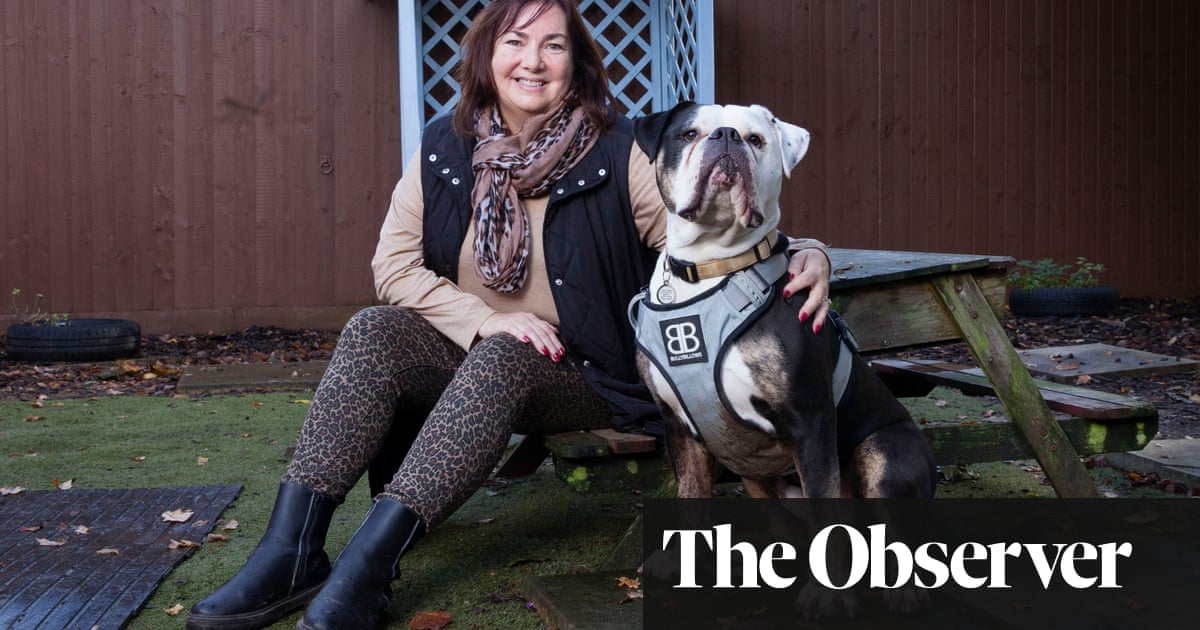
It’s another busy day at Holly Hedge Animal Sanctuary in north Somerset where Lou – who has been part of the team for 23 years – is cleaning the pens and preparing food in the cattery where Margaux is nursing her 10-day-old kittens.
Margaux’s owner was made homeless due to the cost of living crisis. With no place to call home and an uncertain future, she could no longer care for her much-loved cat. Having to say goodbye to her pet and bring her to Holly Hedge was heartbreaking, but such stories are becoming increasingly familiar to the staff and volunteers at the sanctuary in Barrow Gurney, near Bristol.
“It’s genuinely tough to see people bring their pets into us because of the cost of living,” says cattery and kennels manager Beccy Hill. “It’s not their fault they can no longer care for a pet. And it’s upsetting for the dogs – they come in really confused.”
Margaux and her owner are not an isolated case. Pet welfare charities are preparing for a crisis at Christmas as the rising cost of living forces owners to surrender their pets, while rehoming numbers plummet.
“We’re desperately concerned about the coming winter months – abandonments have soared and many rescue centres are full to bursting,” Dermot Murphy, RSPCA inspectorate commissioner, told the Observer. “Our rescue teams are set to be busier than ever this Christmas.”
Calls about pet neglect and abandonment to the RSPCA are reaching a three-year high, with more than 16,000 abandonments reported to the charity’s emergency line in the first nine months of 2023 – an increase of more than 7% on the same period last year.
At Holly Hedge, the numbers come as no surprise. Nine out of 10 calls to the sanctuary are coming from owners asking to surrender a pet, with the cost of living crisis increasingly to blame.
The phones do not stop ringing in the meeting room that has hastily been repurposed as the charity’s reception after the old reception building started to fall down and was deemed unsafe.
“I’ve never known it like this before,” says Suzanne, who is on the frontline of the crisis and tells of the “desperation we hear from callers who can no longer care for their pets because they are being evicted, or they have lost their job, or they simply can’t afford the vet bills”.
When they learn that the sanctuary is at capacity, some callers become abusive, threatening to dump their pet on the side of the road. “It’s really difficult,” says receptionist Becky.
The sun has come out over Holly Hedge and it’s time for bulldog Jaxon to go for his second walk of the day. He stops stubbornly at the gate before bounding through the rain-wet grass and muddy puddles in the field. He has been here for two years: “We all love him,” says Holly Hedge’s community fundraiser, Rose Gray.
Jaxon is not unique in his long wait. Brigitte was brought to the sanctuary in January, while Lily – who arrived as a stray puppy and is now a bouncy one-year-old – has barely known a life outside Holly Hedge’s grounds. Prospective adopters are weighing up their finances and concluding they simply cannot afford to take on a pet. The RSPCA reports that rehoming rates have fallen by just under a third since 2019.
“The number of people coming forward to adopt has dropped massively, so dogs remain here for longer,” says Hill. “We thought the number of dogs surrendered after lockdown was the worst we’d ever seen. And then the cost of living crisis hit, and it got so much worse.”
The crisis is changing the profile of dogs being brought into the sanctuary, explains Gray. “We are seeing more ‘desirable’ breeds – dogs such as dachshunds, French bulldogs, pugs, cockapoos – dogs that are more at risk of complex health conditions.”
Those health conditions lead to hefty vet bills. A recent survey conducted by the charity Dogs Trust found that 49% of dog owners say veterinary costs are their “greatest worry” in terms of pet care.
“People aren’t getting pet insurance because they can’t afford it, and they can’t afford the vet bills, so they are forced to bring their dogs to us,” says Gray.
The Competition and Markets Authority this year launched a review into vet costs. “Our vet bill has been £185,000 this year, when it was £115,000 in 2022,” says Holly Hedge’s fundraising manager, Helen Ren-Huckle.
“Pets who come to us often need vet care. Take Phoenix, a cat whose owners left him in their garden for seven years. He had lost most of his fur, his eyes were damaged, he needed a lot of help.
“Our food and energy bills are up, need is up, and rehoming is down. It’s a perfect storm.”












